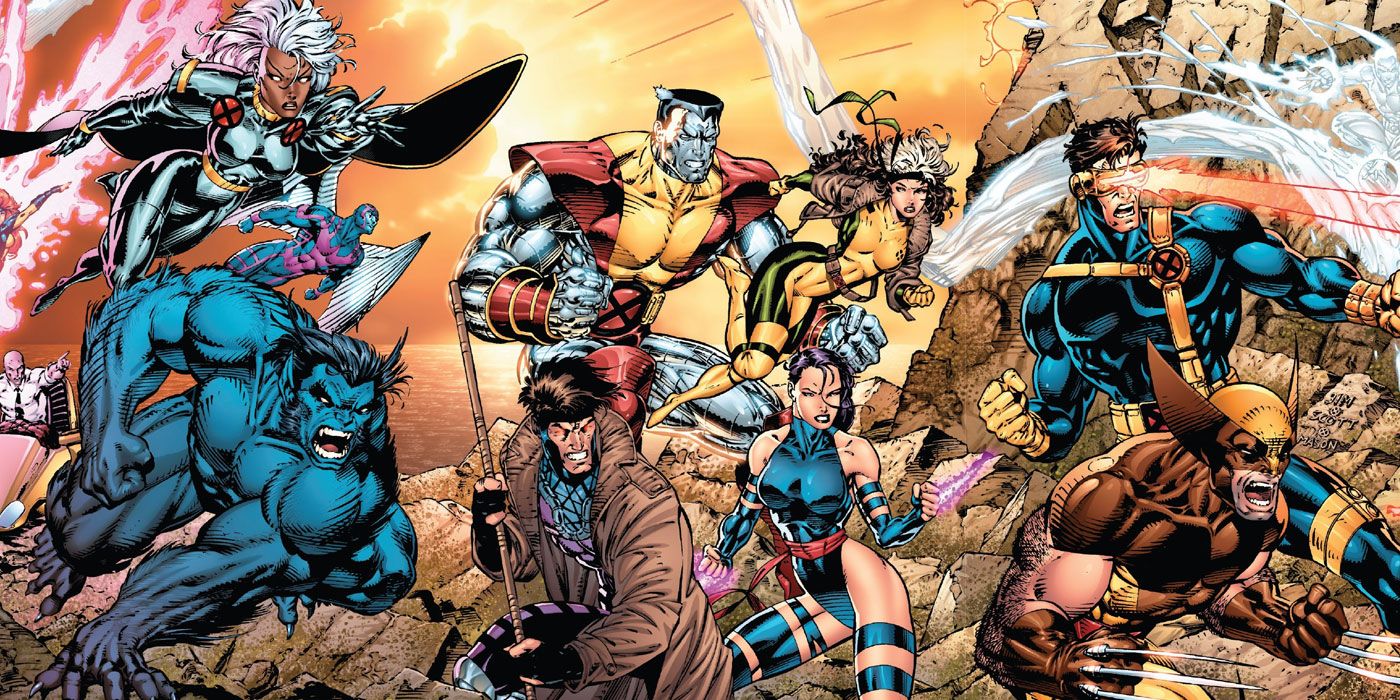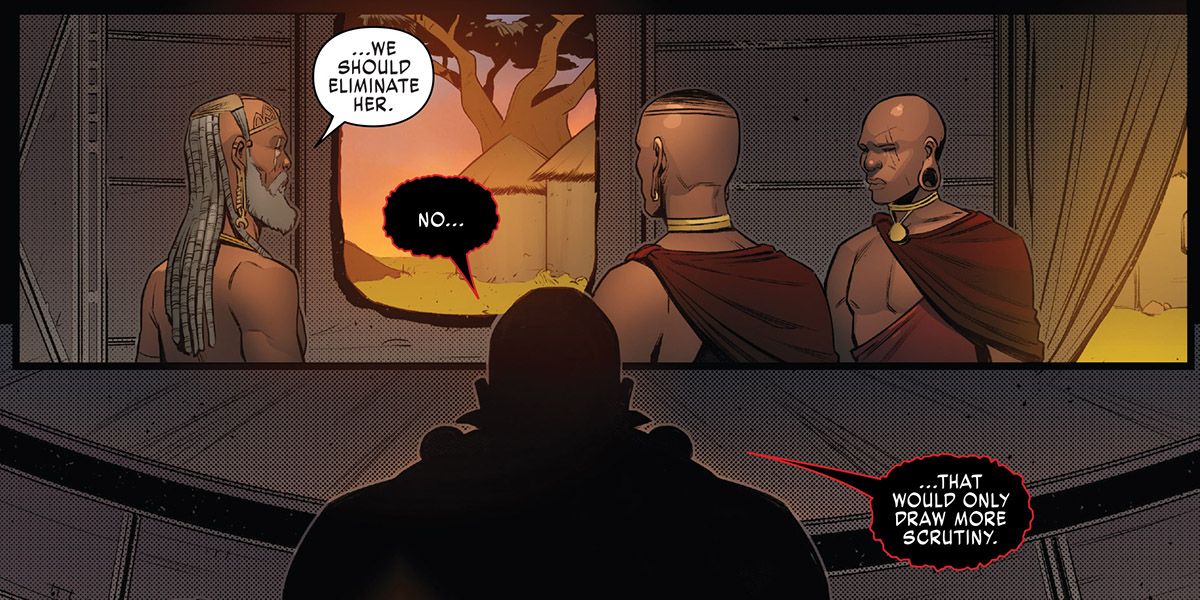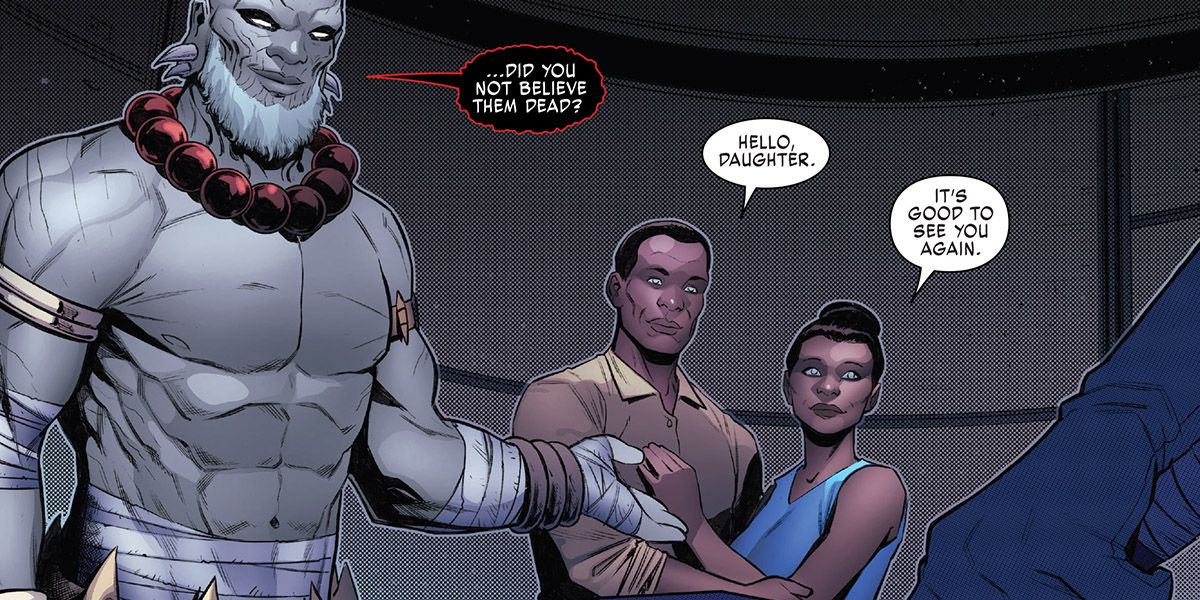WARNING: The following article contains major spoilers for X-Men Gold #33 by Marc Guggenheim, Michele Bandini, Erick Arciniega and Cory Petit, on sale now.
Deceased parents are a long-standing trope of superhero fiction. Superman’s parents sent him to Earth but died along with the rest of Krypton, Batman’s parents were shot in front of him by Joe Chill, Spider-Man’s parents died in a plane crash and then his father-figure was gunned down by a home invader.
Giving a character a dead parent or two before we even meet them is an easy shorthand to explain why they are a hero. Usually their parents’ deaths were due to some injustice or some mistake on their behalf, and the hero wants to avenge them or live up to the lessons they taught them.
As the biggest superhero team in Marvel Comics, the X-Men have enough dead parents to fill out their own team. Cyclops’ mother was abducted and killed by the Shi’ar, Kitty Pryde’s father died in the genocide of Genosha, Rogue’s parents were — actually, that’s one of the more complicated ones that we don’t need to get into right now, but you get the point.
RELATED: How Storm Regained Her Asgardian Hammer In X-Men Gold -- And Why
This week, one of the most iconic X-Men seemingly gets a second chance with their parents, who died when they were just a child. However, in order to be reunited with them, they may need to sacrifice their principles and make a deal with a devil.
X-Men Gold's new arc is the start of a deep dive into Storm’s background, specifically her African heritage, and sees her returning to the village of Uzuri where she was raised following the death of her parents. It was there she was first worshipped as a god known as the Wind-Rider due to her phenomenal powers over the weather, which brought prosperity to the once struggling village.
However, these days Uzuri hasn’t seen its Wind-Rider god in many years and the population has largely turned their backs on Storm, choosing instead to worship a new god named Uovu, who has started something of a death cult within Ororo Munroe’s teenage home, fulfilling the needs of the community in a way Storm has been neglecting.
Learning of this from her contacts at the Wakandan Embassy, Storm returns home to Uzuri where she learns about the death of her mother figure, Ainet, and the rise of Uovu, which concerns her due to the word’s meaning in Swahili: evil. In order to assuage her concerns, Ororo is invited to meet Uovu, who, rather than wanting to eliminate the competition, intends for Storm to join his cause, thinking he’ll be able to convert even more followers to his new religion if the villager’s previous goddess sides with him. He's also smart enough to consider that if she doesn’t return from Uzuri, it will bring the entire X-Men down on the small village.
Instead, Uovu meets with Storm and seems to be somewhat agreeable and pleasant, if not terrifyingly intimidating in appearance. Uovu’s appearance causes Storm to instinctively arm herself with Stormcaster, her Asgardian hammer, but Uovu assures there is no need, because he sees her as an equal and someone he doesn’t want to fight (or so he says). In order to prove his good intentions, Uovu reveals this issue’s bombshell -- he has resurrected Ororo’s parents and they are on his side as worshippers of his cause.
Page 2: [valnet-url-page page=2 paginated=0 text='They Mess You Up, Your Mum And Dad']
Ororo Munroe was born to an American named David Munroe and his wife N’Dare, a princess of the Uzuri tribe of Kenya. The couple met and were married in America, and initially their daughter Ororo was raised in Manhattan, where she was born, before the they moved to Cairo when she was still just a young girl. The original story of how her parents died is a bit dated, as the tale told in Uncanny X-Men #102 places the Munroes in Cairo during the opening of the Suez War, in 1952.
While the exact details of events may need updating for Marvel’s sliding timescale -- which we may get with this arc in X-Men Gold -- the fact remains the same that the Munroes’ house was destroyed, her parents were killed by falling debris and Ororo herself was trapped under the rubble, which would be the foundation for the crippling claustrophobia she would develop later in life.
Once free, Ororo wandered Egypt as a homeless orphan until she felt drawn to her mother’s homeland of Kenya, where she was taken in by the priestess Ainet who served as her maternal figure. When the young Ororo began developing her mutant powers, Ainet helped guide her in the use of them so that they could benefit the people of the region, and soon she came to be worshipped as a goddess.
Eventually, word got out about a goddess in a small Kenyan village who could control the weather and Uzuri was visited by Professor Charles Xavier, who recruited Ororo Munroe for his new team of X-Men, as his previous team had gone missing on the island of Krakoa. The rest, as they say, is history.
RELATED: Jake Wyatt Departs Sp//dr-Focused Edge of Spider-Geddon #2
Storm’s relationship with her parents and her homeland isn’t something that has been explored in tremendous detail, and with this X-Men Gold arc we get the chance to learn more about where the fan-favorite mutant came from, while hopefully doing away with some of the more racially and culturally insensitive aspects of her origin that come from a less enlightened time.
How her parents seem to be alive is still a mystery, though it echoes the resurrections of Dead No More: The Clone Conspiracy surprisingly closely. So, there may be a more scientific reason for the return of David and N’Dare Munroe than their daughter has been led to believe. Whatever the case, the return of Storm’s parents signals a major development for one of the most popular mutants as X-Men Gold heads towards its final issue. The series is still proving to be a comic people need to keep an eye on.



